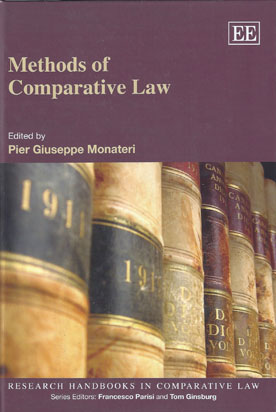
Comprising an array of distinguished contributors, this pioneering volume of original contributions explores theoretical and empirical issues in comparative law.
The innovative, interpretive approach found here combines explorative scholarship and research with thoughtful, qualitative critiques of the field. The book promotes a deeper appreciation of classical theories and offers new ways to re-orient the study of legal transplants and transnational codes.
Methods of Comparative Law brings to bear new thinking on topics including: the mutual relationship between space and law; the plot that structures legal narratives, identities and judicial interpretations; a strategic approach to legal decision making; and the inner potentialities of the ‘comparative law and economics’ approach to the field. Together, the contributors reassesses the scientific understanding of comparative methodologies in the field of law in order to provide both critical insights into the traditional literature and an original overview of the most recent and purposive trends.
A welcome addition to the lively field of comparative law, Methods of Comparative Law will appeal to students and scholars of law, comparative law and economics. Judges and practitioners will also find much of interest here.